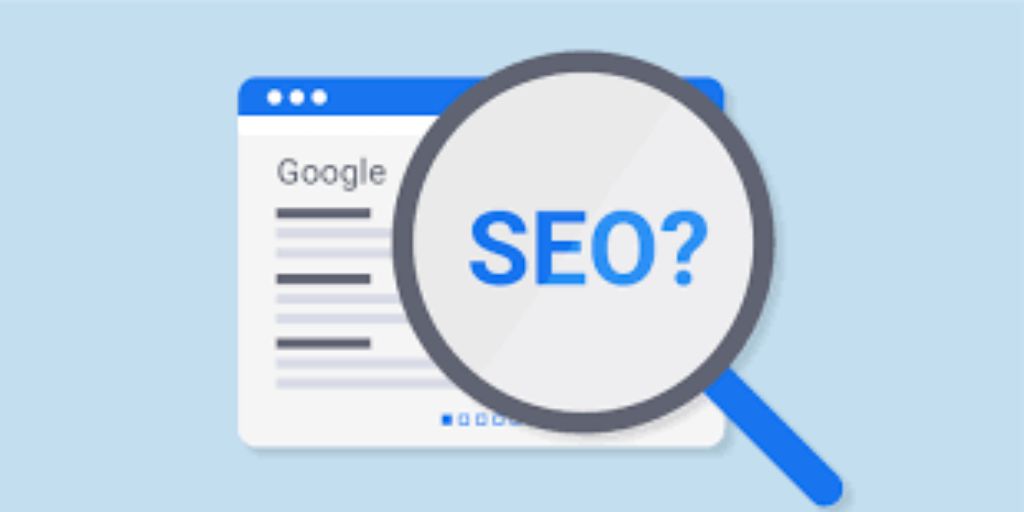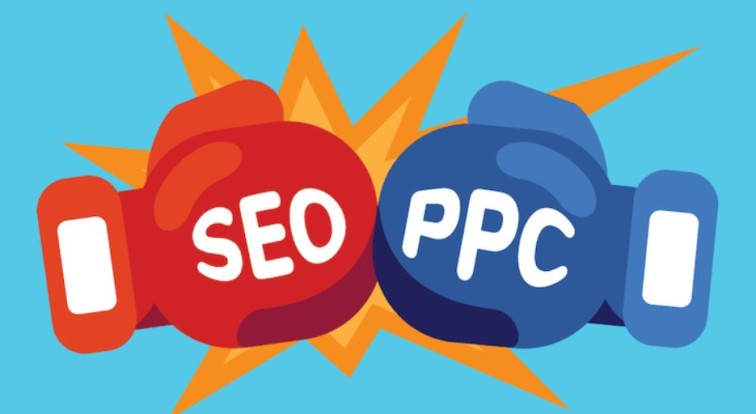The debate between PPC and SEO comes back every few years, and it appears that it will never come to an end. Regarding business, which is superior: PPC or SEO? Should you prioritize organic search, pay-per-click, or both? This argument has wandered in numerous directions, and a number of them have missed the mark.
Knowing the distinction between PPC and SEO is crucial for implementing the appropriate strategy. However, what is essential to understand about these two methods for increasing site traffic? Continue reading to learn more about pay-per-click campaigns and search engine optimization.
SEO vs. PPC: Difference
Search Engine Optimization (SEO)

Changes to website pages, such as title tags, image tags, meta descriptions, keywords, and internal links, as well as encouraging other websites to link back to your own, are all part of search engine optimization (SEO).
There are more than 3.5 billion searches conducted on Google every single day, making it the most popular search engine among all of them. Google is the primary focus of the majority of search engine optimization campaigns.
Ranking results will start to appear shortly as a search engine crawls, indexes, and concludes that a web page is both relevant and secure. To achieve successful SEO results, time is required. The encouraging news is that if you succeed in climbing higher in the rankings, you will most likely remain there.
As a result, there are situations in which we should give priority to SEO strategies over PPC strategies. In the following section, we will talk about the situations in which search engine optimization would be extremely beneficial for an online service or business.
Pay-Per-Click (PPC)

When comparing Pay-Per-Click (PPC) to SEO, it is observed that PPC generates immediate results via paid advertisements. Your advertisement will typically appear higher on the page, before the organic search results. However, a "sponsored" tag will appear next to the link, indicating that you paid for that advertisement.
PPC models only deduct the cost if the user clicks on the advertisement. Generally, the quantity is determined by the volume and specific field of study of the keywords selected.
Without the domain authority required to rank a website organically on search engines, pay-per-click (PPC) advertising can assist a company in reaching its target audience and remaining competitive in a crowded marketplace.
Strengths of SEO and PPC
PPC and SEO both have the same objective, which is to increase the amount of qualified traffic that visits your website pages. The benefits of search engine optimization (SEO) and pay-per-click (PPC) advertising, when used together, can produce excellent results, even though they require different approaches and strategies to be effective.
Why SEO?
1. Increases organic traffic. When you use search engine optimization (SEO), you can increase the amount of organic traffic that your website receives. Organic traffic is defined as the number of people who discover your website through the use of a search engine.
2. Less costly in the long term. In the long run, SEO has a lower cost because you do not have to pay for each click that is made on your website.
3. Builds confidence and credibility. With SEO, you won't have to worry about potential customers seeing a sponsored tag next to your meta title on the SERP.
4. More sustainable in terms of long-term growth. As a result of the fact that your traffic will keep rising even if you discontinue updating the page, search engine optimization can be more sustainable.
Why PPC?
1. Quick results. You will see results quickly. To get as many people to see your name as possible, all you have to do is bid on the open ad space. People will see your link right away, and you can get them to click on it.
2. Gather the proper audience. With PPC ads, it is also easier to get your message to the right people. To get your name in front of the people you want to buy from you, you will need to figure out what keywords are most relevant to your goods and services.
3. SERPs will feature content at the top. As mentioned, your website or desired page will appear on the top of the SERP above the first organic result.
Drawbacks of SEO and PPC
Both SEO and PPC advertising are not without their challenges. At this point, we will talk about some of the drawbacks that are associated with this.
Why not SEO?
1. There are no immediate results. Before you even reach the first page of the SERP, it may take a considerable amount of time to get there.
2. Competitive keywords. Probably some of the keywords that you wish to optimize for are extremely competitive. This indicates that numerous individuals are competing for the same terms, making it challenging to distinguish oneself from the crowd.
3. Constant algorithm updates for search engines. Operating at the top of the page is difficult due to the constant evolution of search engine algorithms.
4. Lengthy and tedious. Determine what kind of content you want to make available and how you want to organize it. This is a process that requires a significant amount of time on your part. Additionally, learning the ins and outs of search engine optimization can be a laborious task.
Why not PPC?
1. Expensive. Implementing a PPC campaign over an extended period can be costly. Since you are charged for each click on your advertisement, the costs can quickly build.
2. Lacks consistent profitability. Your PPC campaigns may not appear in the SERP due to the possibility that an opponent will outbid you for the same keywords and phrases. RankPay also reports that 94% of users exclude paid search results, even if your ad does appear in the SERP.
3. Visibility is temporary. Your visibility will diminish if you quit paying for your advertisement. As a result, your advertisement's visibility will plummet as it is immediately removed from the SERP.
SEO vs. PPC: Which is better for business?
Pricing and position are the two distinctions to consider when comparing SEO and PPC. Although PPC advertisements rank above organic results in search results, they require payment for each ad click. SEO generates organic traffic at no cost; however, it places your website beneath paid advertisements in search engine results.
So, regarding your company, which is superior: PPC or SEO? Should you begin the sprint or lace up your sneakers and begin running the marathon? Whether you answer that question is entirely your decision.
For example, when preparing noodles, the fork would function exceptionally well. However, soup? We prefer to have the spoon instead.
Likewise, it is essential to think about both forms of digital marketing; afterward, one may determine whether SEO, PPC, or both alternatives are most suitable for their requirements, objectives, and financial resources.
- Do you need leads right now, for an event, or something else?
- Are you ready to wait for the results?
- What is your budget?
- Do a lot of people trust your domain?
- What is the position of your competitors in organic search results?
Now let's take a look at a few of these different situations.
Use SEO if…
- Your budget for marketing is small.
- Your objective is to establish brand authority.
- Maximizing long-term return on investment (ROI) is your objective.
- You should develop content that engages your target audience at various points along the sales funnel.
Use PPC if…
- You seek results quickly.
- Your product is innovative or unique in nature.
- You are advertising a limited-time offer, such as a holiday sale.
- Your target audience should be directed to a landing page or sales page.
A small business or startup may lack the financial resources necessary to invest in paid advertising. In areas where competition is minimal, an SEO strategy may enhance a website's visibility in organic and local search results. SEO is a cost-effective long-term strategy, and once you achieve a high ranking, your traffic will remain consistent.
You may be able to identify a pertinent keyword, have little competition, and generate a substantial monthly search volume if your market is niche. Develop your SEO strategy immediately to achieve a ranking for this keyword, before any competitors.
E-commerce sites attempting to compete with Amazon or similar platforms will find it difficult to outrank them in organic search results. Paid search engine marketing (PPC) advertisements would invigorate your brand awareness campaign.
If your company has a sizable advertising budget, launch the PPC advertisements immediately. Instantaneous results will be observed. Additionally, you can target specific audiences, as opposed to spending a fortune on a billboard that is only relevant to ten out of one hundred passersby.
Both PPC and SEO are effective strategies for increasing website traffic. Proven to produce results whether combined or used independently. However, there are circumstances in which one prevails over the other.
PPC and SEO Working Together
PPC and SEO both have the same objective, which is to increase the amount of qualified traffic that visits your website pages. Thus,
Put apart, they both give a good result. If you know how to work together, you can get better results.
The benefits of SEO and PPC advertising, when used together, can produce excellent results, even though they require different approaches and strategies to be effective.
- SEO is ideal for achieving your long-term goals. Aiming for keywords with low competition that, once ranked, will consistently generate results.
- PPC works to meet short-term goals. Focusing on high-competition keywords, which are used by an excessive number of websites and are therefore difficult to rank for.
If you have the financial means and capabilities to do so, SEO and PPC are most effective when combined. When targeting particular, low-competition keywords that will continue to return results even after your site is deleted, SEO is most effective for long-term objectives. PPC is fantastic for short-term objectives and targeting overcrowded, high-competition keywords that are ineffective for SEO.
When they are utilized in combination, one receives the advantages of both while minimizing the drawbacks. Time is still required for executing an SEO strategy, and money is still required to run PPC advertisements. However, the combined revenue of the two will more than compensate for any drawbacks.
Let's take a look at some ways that SEO and PPC advertising can be used together.
1. Connect Search Console to Google Ads to share information.
2. Use PPC ads to promote your organic content.
3. Using PPC to compare two versions of copy and landing pages
Wrapping Up!
A solid digital marketing plan utilizing SEO and PPC can help you get the most out of your online presence. You need skills to make the most of SEO and PPC advertising. Putting money into the proper resources and personnel is essential.
To host your website and generate SEO-friendly content, for example, you can utilize MailChimp. As a bonus, you can keep your company at the forefront of customers' minds by combining an email campaign with your SEO and PPC strategy.
Frequently Asked Questions (FAQs)
You can find new, valuable keywords with pay-per-click (PPC) ads. PPC also helps your SEO and gets you on the first page of search results.
There is no one better than the other when it comes to PPC or SEO. Every single one of them has its own pros and cons. Still, using them together is always best.
One of the most important differences between PPC and SEO is the total cost. However, if you want your PPC ad to appear in search engines, you will have to pay for it. SEO traffic is free.







